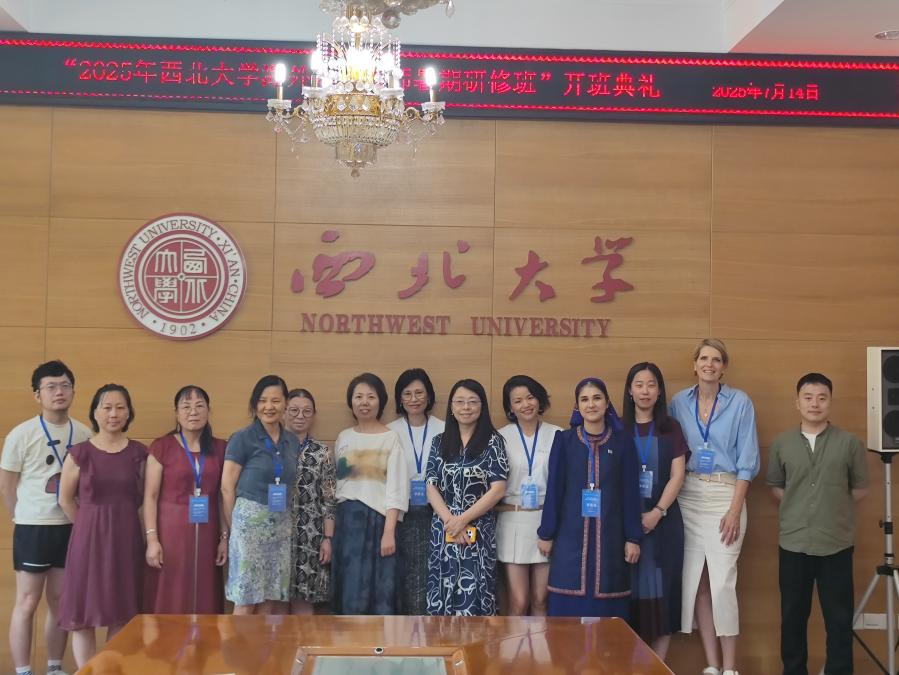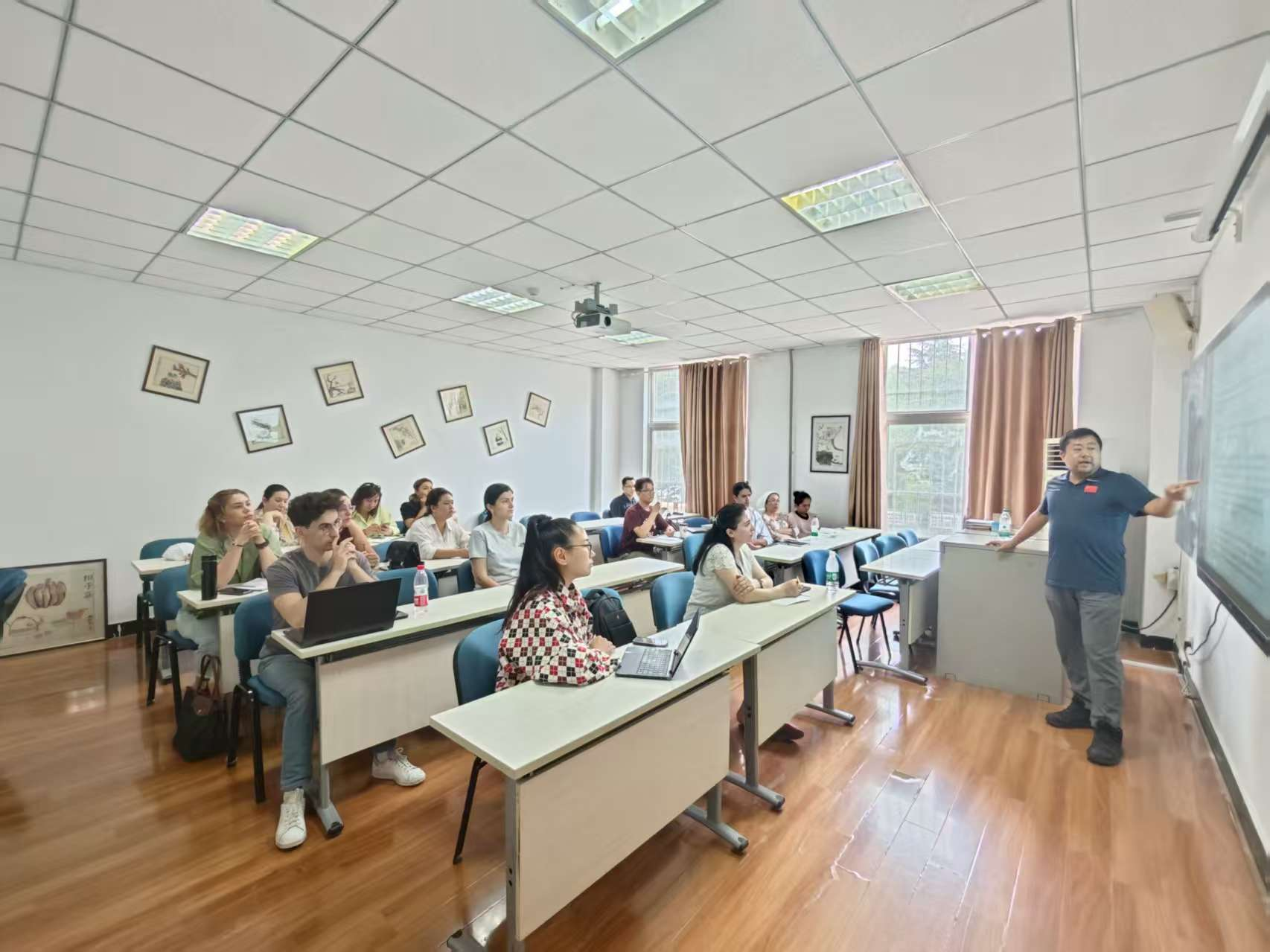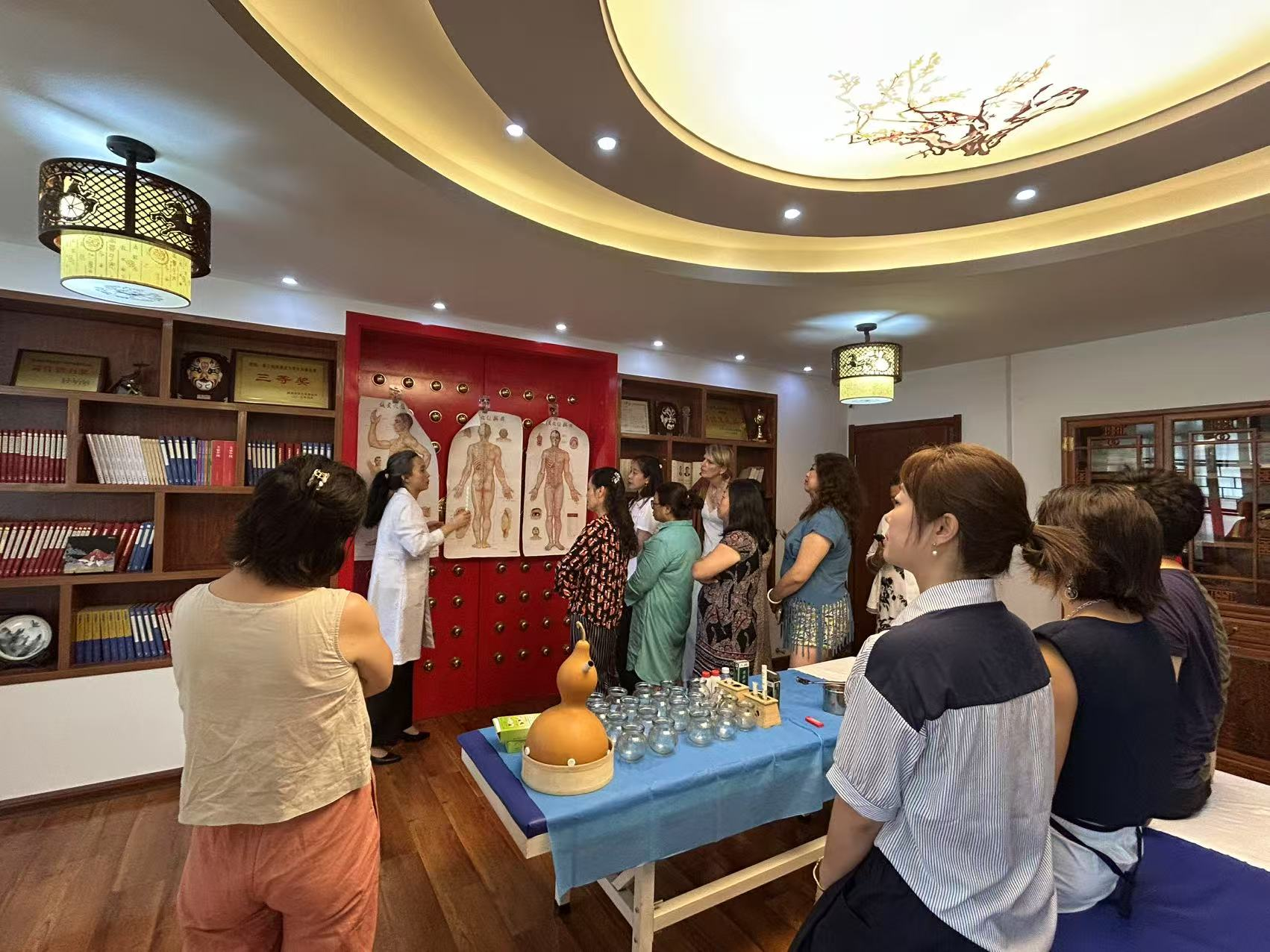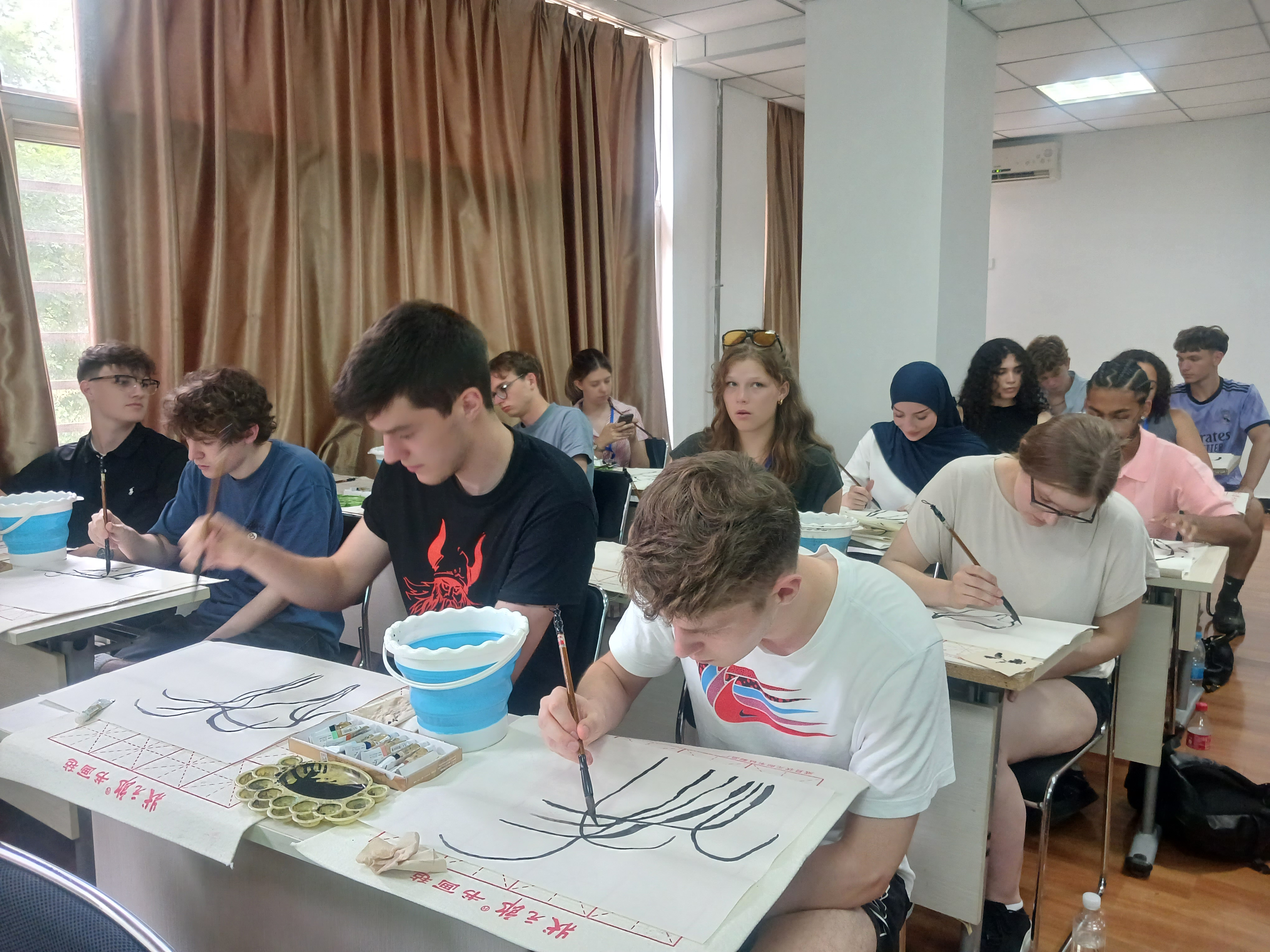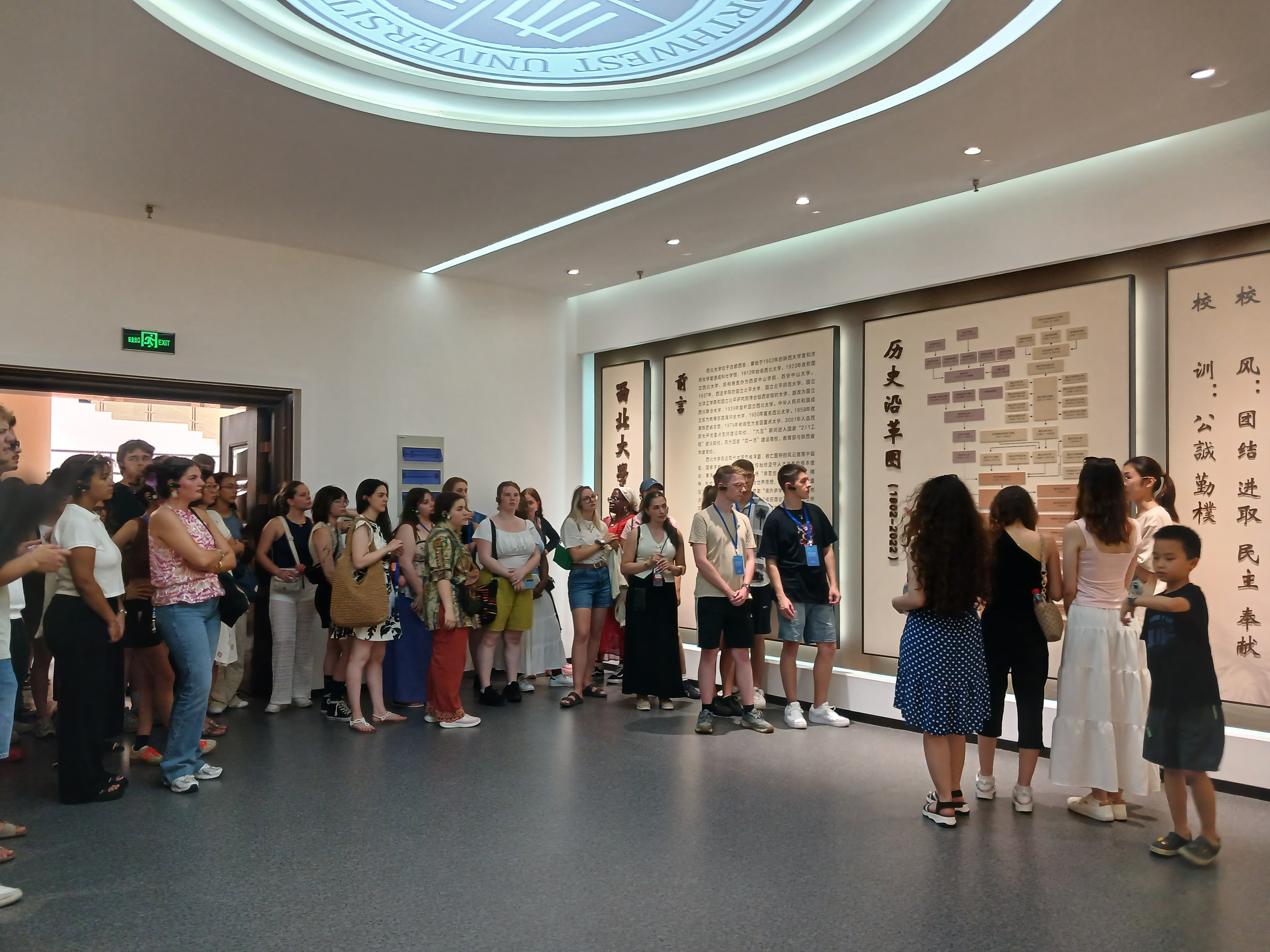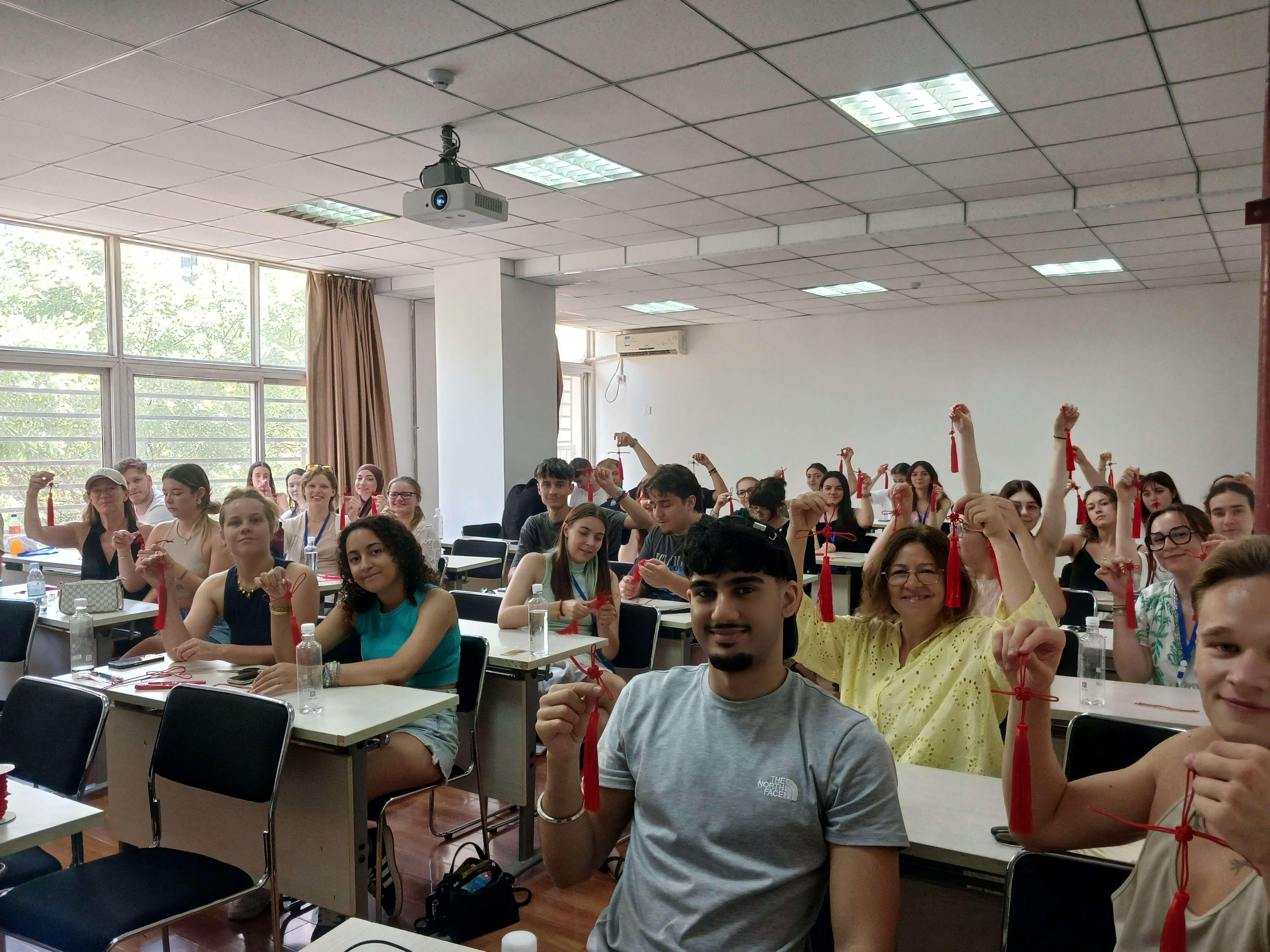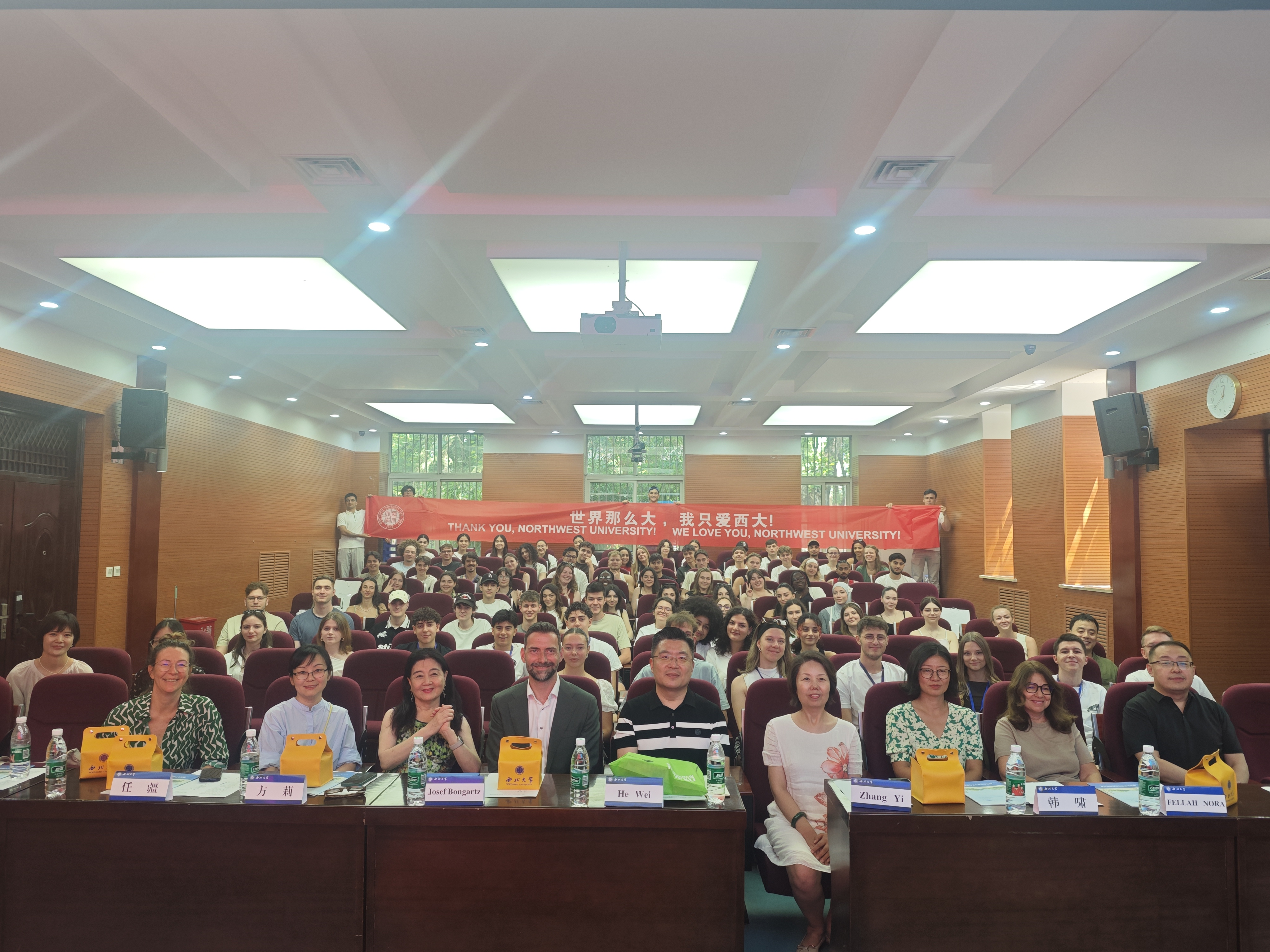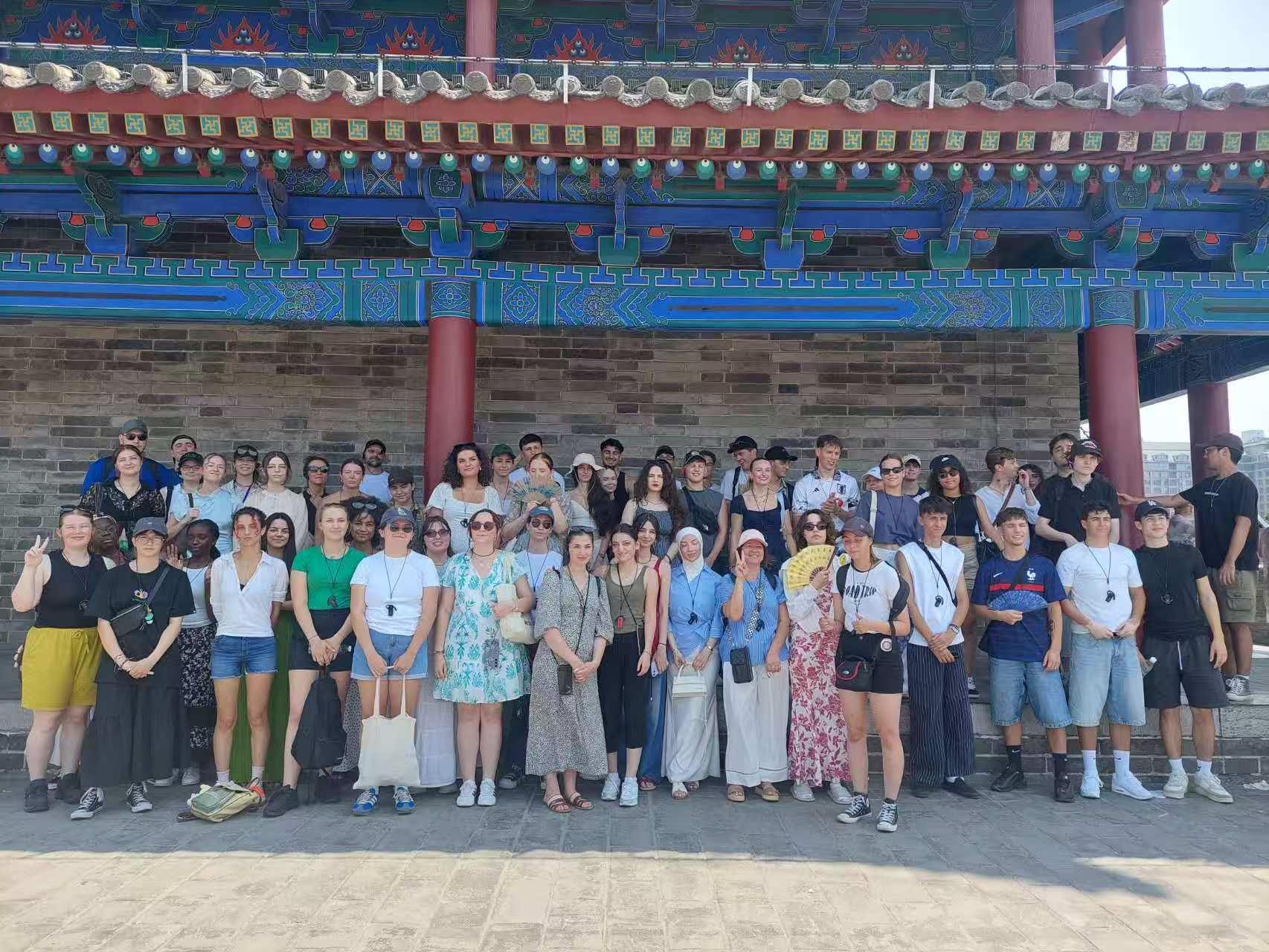In the summer of 2025, the School of International Education offered a total of 7 short-term programs for international students. 232 teachers and students from 21 countries, including the United States, France, Germany, Italy, Morocco, Algeria, Egypt, and Turkey, came to Northwest University for studies lasting 2 weeks to 1 month respectively.
For a long time, NWU has adhered to the international development strategy of “Based on Neighboring Regions, Deepening Engagement in Central Asia and the Middle East, and Going Global”. Since the second half of 2024, with the core goal of building the “Study at NWU 2.0” brand, NWU has organized learning content with distinct themes and arranged a variety of exchange activities. It has developed a comprehensive learning program centered on “language learning + cultural experience + professional lectures + social practice”, and carefully designed high-level short-term international student programs in Xi’an. Meanwhile, the School of International Education has taken the initiative to make overall plans, establish extensive connections, actively engage with long-term advantageous cooperation regions in Central Asia, East Asia, and Southeast Asia, and further explore key cooperation regions such as Europe, America, and North Africa. By joining hands with talent cultivation units within the university, it has made every effort to promote the organization of short-term programs for international students in Xi’an.
In 2025, the university plans to launch a total of 13 short-term programs of various types, expecting to host approximately 340 international students and visiting teachers. Among these, 7 short-term programs were held intensively in the summer, including the “YES·Charming Chang’an 2025 European and American Student Delegation to China”, “YES·Charming Chang’an 2025 German-French Student Delegation to China”, “Overseas Local Mandarin Teachers’ Training Program”, and “Northwest University Global South and Modernization Path Summer Camp”.
In the arrangement of the short-term programs, NWU attached great importance to strengthening language and cultural teaching. It offered targeted hierarchical intensive Chinese courses and adopted small-class and interactive teaching methods to rapidly improve students’ practical language skills. At the same time, workshops on excellent traditional Chinese culture, such as Chinese calligraphy, traditional Chinese painting, tai chi, and traditional Chinese classical music, were set up, allowing participants to deeply experience the charm of Chinese culture through hands-on practice. In addition, to give full play to the university’s disciplinary advantages in archaeology, geology, economics, history, and other fields, the school organized cutting-edge academic lectures to showcase the latest disciplinary progress and arouse strong interest among the participants. Beyond their studies, NWU further enhanced social practice and visits to historical and cultural sites. It carefully designed multiple routes, leading participants to historical relics such as the Shaanxi History Museum and the Emperor Qinshihuang’s Mausoleum Museum to experience the profoundness and extensiveness of Chinese civilization; took them to visit local high-tech industrial parks and well-known enterprises to learn about vivid cases of China’s high-quality development; and guided them to explore surrounding villages to experience the style and features of China’s new rural construction. These activities enabled international teachers and students to go beyond classrooms and textbooks, gaining a more intuitive and in-depth understanding of China’s history and current situation through practice.
After participating in the short-term programs, international teachers and students stated that their Chinese proficiency had improved significantly, and their understanding of Chinese culture and contemporary development had changed. They shared their experiences in China with family and friends through social media, taking the initiative to become “cultural ambassadors” who spread China’s voice and promote cultural mutual learning.
